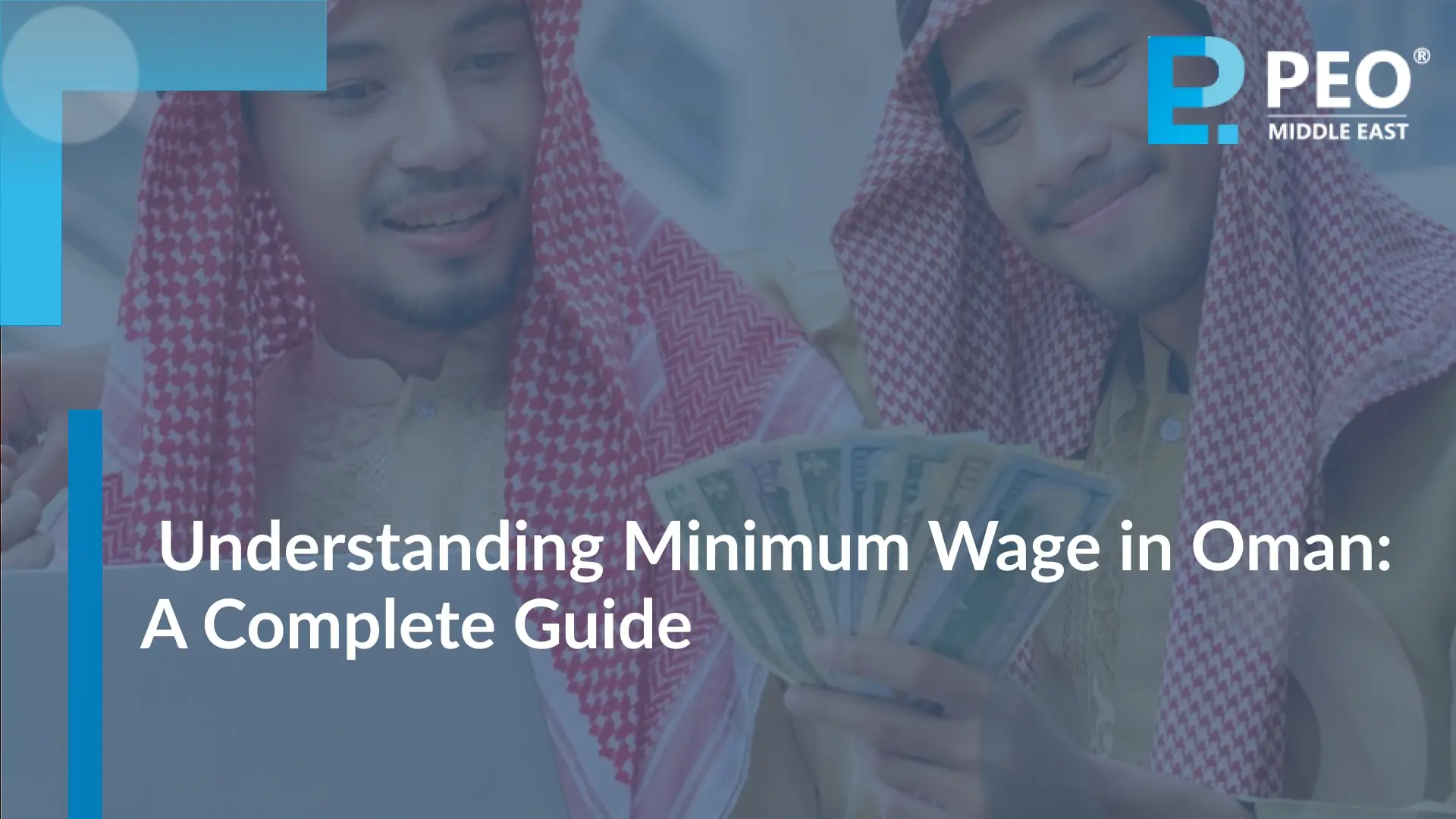Oman, a nation celebrated for its rich culture, stunning landscapes, and thriving economy, has garnered significant attention from investors and expatriates alike. For professionals and businesses operating within the region, understanding the minimum wage in Oman is vital for planning salaries, ensuring compliance, and fostering fair employment practices. This guide provides a detailed yet accessible explanation of the minimum wage in Oman, highlighting the latest updates and essential insights relevant in 2025.
What is the Minimum Wage in Oman?
As of 2025, the minimum wage in Oman stands at OMR 325 per month. This figure is divided into a basic salary of OMR 225 and an additional OMR 100 allocated for allowances. It is primarily applicable to Omani nationals and has been established to support the Sultanate’s drive for economic stability and social development. However, expatriates do not fall under the same guidelines, as their salaries are determined by their employment contracts.
This policy plays a critical role in ensuring that workers in Oman receive a fair wage that meets basic living standards. The government periodically reviews the minimum wage to align it with the evolving economic landscape, inflation rates, and living costs, making it a key part of Oman’s labor framework.
Key Objectives of Oman’s Minimum Wage Policy
The government’s minimum wage policy reflects its broader economic goals, including:
- Encouraging Omani Workforce Participation: By setting a competitive baseline salary, the policy motivates locals to join the private sector.
- Reducing Income Inequality: Ensuring fair pay helps balance income distribution across the workforce.
- Boosting Economic Growth: A higher disposable income for workers contributes to increased consumer spending and overall economic growth.
- Promoting Economic Stability: By maintaining predictable wage standards, businesses and employees alike can plan for the future with greater confidence.
Minimum Wage for Expatriates in Oman

Expatriates often find that their compensation packages include additional benefits such as housing, transportation allowances, and medical coverage. These perks are negotiated on a case-by-case basis and significantly influence the overall remuneration. Employers must remain competitive in attracting skilled expatriates while adhering to fair labor practices.
Minimum Salary in Oman by Industry
Different industries in Oman provide varying salary structures. Here is a general overview of the average monthly salaries across key sectors:
| Industry | Average Monthly Salary (OMR) |
| Construction | 200 – 400 |
| Healthcare | 400 – 900 |
| Information Technology | 600 – 1,200 |
| Education | 300 – 800 |
| Tourism and Hospitality | 250 – 500 |
Note: These figures are estimates and may vary based on the employer and specific job roles.
Understanding these benchmarks is critical for businesses to offer competitive salaries and attract top-tier talent in their respective industries.
How Does the Minimum Wage Impact Employers in Oman?
The minimum wage policy in Oman directly influences the way businesses manage their finances and operations. For employers, understanding its implications is key to maintaining compliance and fostering a productive workforce.
1. Budgeting and Payroll Management
Employers must consider the minimum salary in Oman when preparing budgets. For businesses hiring Omani nationals, adhering to the wage threshold is non-negotiable. By incorporating the minimum wage into financial planning, companies ensure smooth operations and compliance with labor laws.
2. Competitive Advantage
Offering salaries above the minimum wage can attract top talent, both local and international, helping companies stand out in a competitive market. Higher wages often translate into improved employee morale, productivity, and loyalty.
3. Legal Compliance
Employers must remain compliant with Omani labor laws to avoid penalties. Regular updates from the Ministry of Labour ensure businesses stay informed about changes in wage policies. Non-compliance can result in fines, legal disputes, and reputational damage, making it imperative for organizations to align their payroll systems with the latest regulations.
4. Social Responsibility
By paying fair wages, businesses contribute to the socio-economic development of Oman. Employers who prioritize ethical compensation practices build stronger relationships with their workforce and enhance their reputation in the local community.
Role of Payroll Outsourcing in Oman

- Ensure timely salary disbursements.
- Maintain compliance with labor regulations.
- Reduce administrative burdens and operational costs.
- Focus on strategic business operations.
Outsourcing payroll services also minimizes the risk of errors, streamlines tax calculations, and ensures accurate record-keeping. For businesses new to Oman, engaging a payroll outsourcing provider simplifies the onboarding process and ensures adherence to local labor standards.
Future Trends in Oman’s Wage Policies
Oman continues to evolve its labor policies to align with Vision 2040. Anticipated trends include:
- Revised Wage Structures: Periodic reviews may lead to adjustments in the minimum wage to reflect inflation and cost-of-living changes.
- Emphasis on Skill Development: Encouraging Omani nationals to enhance their skills to secure higher-paying roles. Government initiatives focusing on education and training aim to bridge skill gaps and improve employability.
- Increased Expatriate Employment Standards: While expatriates currently operate outside minimum wage guidelines, future policies may set baseline salaries for specific job categories to ensure fair treatment and competitiveness.
- Automation in Payroll Management: With advancements in technology, more companies are expected to adopt automated payroll systems, further enhancing compliance and efficiency.
Benefits of Understanding Oman’s Minimum Wage
Whether you are an employer or an employee, understanding the minimum wage in Oman offers several advantages:
- For Employers: Ensures legal compliance, aids in financial planning, and helps attract quality talent.
- For Employees: Provides a clear understanding of their rights and fair compensation expectations.
- For Investors: Offers insights into labor costs, which are a critical component of operational expenses.
Why Partner with PEO Middle East?
Navigating Oman’s labor laws and payroll management can be challenging, especially for companies new to the region. This is where PEO Middle East steps in. As a trusted partner, PEO Middle East provides comprehensive solutions, including payroll outsourcing in Oman, compliance guidance, and strategic HR support. With expertise in the local market, PEO Middle East ensures your business operates seamlessly and adheres to all legal requirements.
PEO Middle East specializes in:
- Managing payroll and compliance efficiently.
- Providing expert advice on local labor laws.
- Assisting with onboarding processes and employee benefits.
Conclusion
Understanding the minimum wage in Oman is crucial for both employers and employees to align with legal standards and promote fair compensation. By staying informed about the latest regulations and leveraging expert services like those offered by PEO Middle East, businesses can achieve compliance and foster a thriving work environment. Whether you’re
planning to expand or seeking payroll solutions, partnering with a professional employer organization ensures success in the competitive Omani market.
FAQs: Understanding the Minimum Wage in Oman
1. Who is eligible for the minimum wage in Oman?
The minimum wage is applicable only to Omani nationals working in the private sector.
2. Does the minimum wage apply to part-time employees?
Yes, but wages for part-time employees are prorated based on their working hours. Employers must ensure that even part-time workers receive compensation aligned with minimum wage standards.
3. Are expatriates affected by the minimum wage laws?
No, expatriates’ salaries are determined by employment contracts, independent of the minimum wage policy. However, businesses often offer competitive packages to retain skilled foreign workers.
4. How often is the minimum wage revised?
The Ministry of Labour reviews the minimum wage periodically, considering economic conditions and inflation.
5. What are the penalties for non-compliance?
Employers failing to adhere to minimum wage regulations can face legal actions, fines, and potential damage to their reputation.





